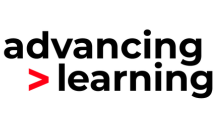The synthesis of knowledge is a high-level skill that we now expect our students to undertake confidently and effectively. But what is meant by this statement? Synthesis is an ability to combine different pieces of information to arrive at a conclusion or solution. In order for a student to successfully achieve the synthesis of information they must have the ability to think flexibly and not only embrace alternatives to their understanding but also find and use them for themselves.
Students need to practice a much more advanced level of abstract thinking in order to practice synthesis. In simple terms synthesis is the bringing together of ideas to make a whole thing out of individual parts. This occurs often in science even at primary level. The concept of science, especially enquiry based is to question and try to find a solution. Students are encouraged to study the work of other scientists and to question their ideas and evidence. They analyse the work of others and question if they were right or if their work can be improved or tested. They decide if the evidence is reliable or accurate and if it is can it be used to support or refute their ideas. Students compare the work of others and identify similarities and differences from their understanding. Students often learn a skill or technique in one subject area and then relearn it because it is in another subject. In my experience students say I don’t understand this or the content is too difficult but they might have just carried out the same task in a maths or technology lesson. Most students find it a challenge or even not realistic to synthesise understanding between content even in the same subject area. How many times as an educator have you said but it is the same principle as when you neutralised an acid with an alkali it is just that you are now using an alkaline sting and acidic vinegar for example. Synthesising knowledge is a life skill that encourages students to have the confidence to use knowledge from one area of study to give them ideas and to question information in other areas of learning. Students have so much to learn and to excel in that there just isn’t the time to learn the same content and to apply it using different strategies or techniques.
In science I have taught lessons about content that I know they have already learned in Maths or Geography but they find it a challenge to transfer the knowledge from one subject area to another. Early in my career I realised that the only solution would be to work with other subject specialists to make sure that we used the same language and methods. Time constraints always seemed to hinder this ideology and so we all spent valuable hours planning the same lessons outside our specialism. In primary education teachers are skilled at planning lessons that address the full range of content but we specialise in a particular subject for a reason. When observing lessons often the areas that are missing from some lessons are the analogies and stories that help children to make sense of difficult concepts. In my experience these have often been the stories I used myself when studying my specialism. They are naturally rolled out when they are needed to support students. When I have had the opportunity to plan with other specialists the outcome is remarkable.
Teachers who work together to share expertise and good practice enjoy the experience. Planning curricula or even short-term plans is less laborious and a much more interesting activity with effective outcomes. For the children the lessons are engaging and stimulating but more importantly using skills from other subject areas and synthesising information and ideas from across the curriculum. This supports students in making sense of the world around them. It also teaches them to have the confidence to use information from other sources to problem solve and question their understanding. These are life skills that not only support students throughout their education as far as they wish to go but it supports them in future careers and making day to day decisions throughout their lives.



